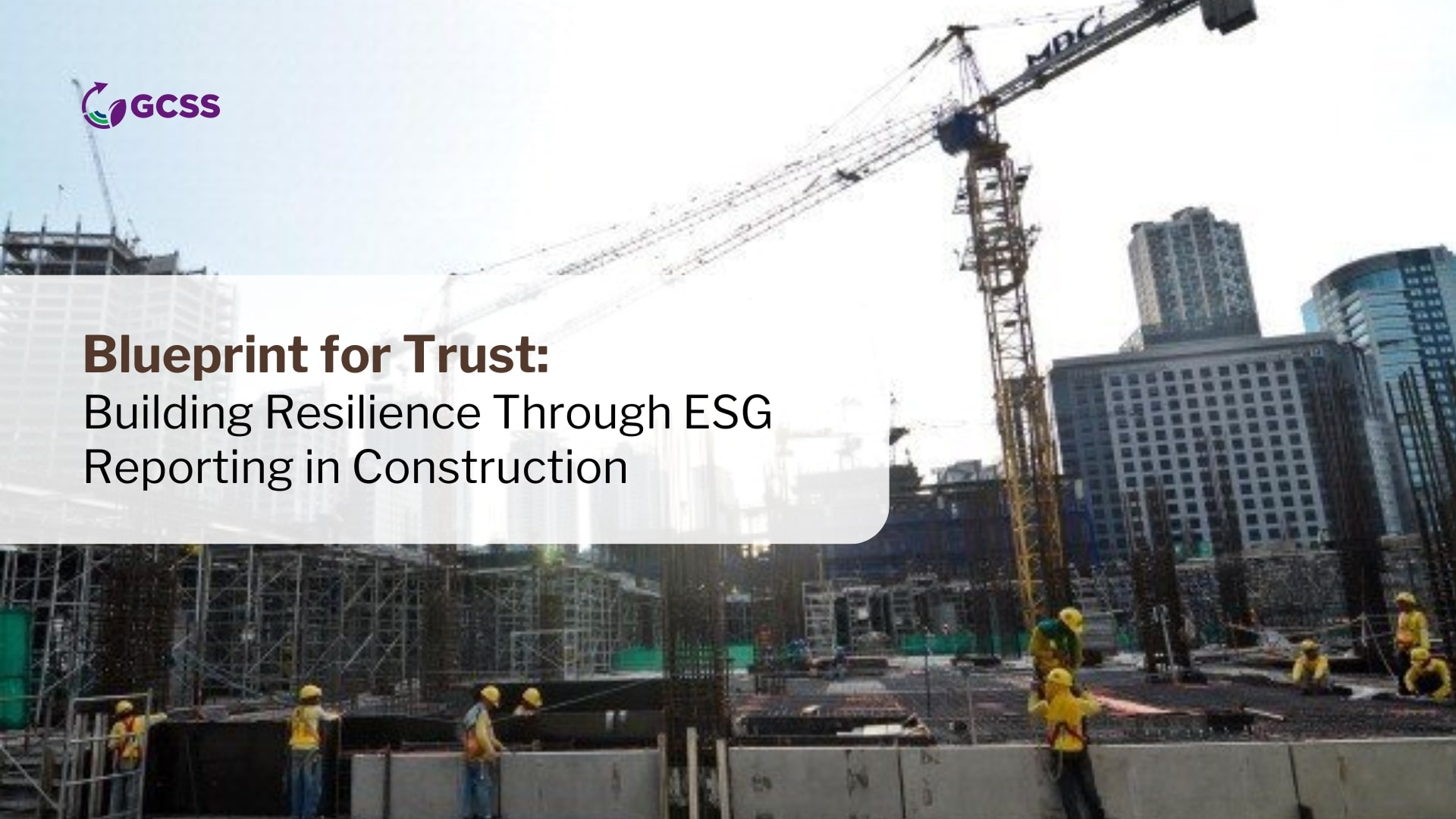
Blueprint for Trust: Building Resilience Through ESG Reporting in Construction
Industry: Construction
Location: Philippines
Focus Areas: GRI Standards, ESG Reporting, Risk Transparency, Green Building Alignment
From Groundbreaking to Ground Rules: Why Reporting Matters in Construction
The Philippine construction industry has been at the forefront of national development—building the infrastructure that drives economic growth. Yet it remains one of the most exposed to operational risks, social scrutiny, and environmental impact.
Whether it’s carbon emissions from cement production, labor conditions at project sites, or the environmental impact of urban expansion, stakeholders now expect construction firms to demonstrate responsibility—not just compliance.
Clients, financiers, and local government units are increasingly asking:
- What are your site-level environmental safeguards?
- How do you manage contractor labor rights?
- Are you aligned with global green building standards?
For a leading construction firm operating across Luzon and Visayas, the shift was clear: transparency would no longer be optional—it would become a license to build.
Elevating the Foundation: Embedding ESG into the Blueprint
The company responded by adopting Global Reporting Initiative (GRI) Standards to structure and elevate its sustainability reporting.
More than a document, the process became a framework for transforming fragmented ESG practices into unified, measurable impact.
What they built:
- A GRI-based sustainability report that disclosed energy consumption, water use, waste management, labor conditions, and community engagement across projects.
- Integrated risk mapping, identifying issues like floodplain development, deforestation impact, and biodiversity sensitivity—especially for rural infrastructure projects.
- Stakeholder consultation protocols, ensuring that LGUs, indigenous communities, subcontractors, and civil society were heard early in the project lifecycle.
- Occupational health and safety (OHS) performance tracking, tied to incident rates, training hours, and site audits—all published with year-on-year data comparisons.
The report also aligned with green building rating systems such as BERDE and EDGE, reinforcing the company’s commitment to energy efficiency and climate resilience.
Raising More Than Structures: The Strategic Benefits
The impact of transparent, GRI-aligned reporting was felt far beyond project dashboards and boardrooms.
Project Approvals Accelerated
With credible ESG documentation readily available, local governments and regulatory agencies expedited permitting and reduced back-and-forth delays—particularly for projects in environmentally sensitive zones.
Access to Climate and Green Financing
The company became eligible for sustainability-linked loans and performance-based financing from domestic banks and development partners—thanks to its clear ESG track record and forward-looking KPIs.
Enhanced Contractor and Supplier Accountability
By requiring subcontractors and suppliers to adopt aligned reporting practices, the company created a ripple effect of ESG accountability across its value chain—minimizing delays caused by non-compliance or labor disputes.
Safer, Smarter Work Sites
Publicly tracked safety metrics and training hours led to improved site compliance and morale. In one fiscal year, the company reported a 32% reduction in reportable safety incidents, tied to ESG-driven oversight mechanisms.
Built to Last: A New Standard for Responsibility in Development
By integrating sustainability reporting into its core operations, this construction firm achieved more than compliance. It demonstrated that transparency builds not just roads and buildings—but trust, resilience, and access.
In a country vulnerable to climate extremes, population growth, and regulatory change, ESG-aligned reporting isn’t a cost center—it’s a foundation for future-proofing the business.
This case sends a clear message to the industry: in modern construction, what you report is just as critical as what you build.
Build Smarter. Report Better. Win Trust.
If you’re in construction or infrastructure development, sustainability reporting isn’t a burden—it’s your new competitive edge.
Contact us at sales@gcssinc.com to start your GRI, IFRS, or ESG reporting journey today.
Follow us on Facebook and LinkedIn to stay ahead of the latest sustainability insights, industry trends, and reporting best practices.
Subscribe to our weekly newsletter and get expert tips delivered straight to your inbox.
Let’s turn reporting into smart, actionable, and profitable business results.

Quick Links
Our Programs
© 2025 GCSS - Gaia Corporate Sustainability Solutions Inc..
